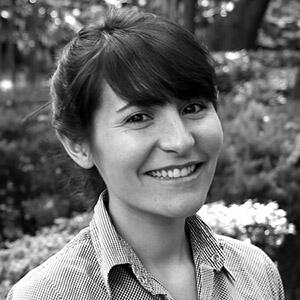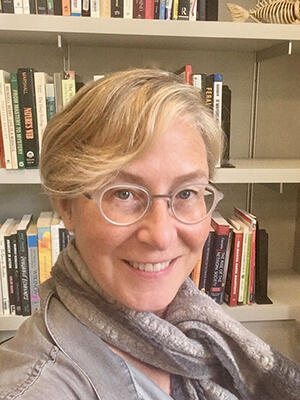Celebrating our New PhD’s in Transition Design for 2023
Carnegie Mellon University’s School of Design is honored to announce our four newest recipients of a PhD in Transition Design. Silvana Juri, Donna Maione, and Marysol Ortega Pallanez all successfully defended their doctoral theses in April 2023.
The PhD in Transition Design is an advanced design research program which explores design-led, societal transition toward more sustainable, just futures. Our world-class program develops future design leaders with the capacity to envision and realize purposeful change across a range of complex systems—from food, water, materials and products, to policy, culture, economy, cities, and social movements.

Silvana Juri is a Uruguayan designer, researcher and educator. Her dissertation "Food Wisdom through Design: A transdiciplinary approach for sustainability transitions," is a three-layered case study, developed in the context of Uruguay, that advances a novel framework that can help design for the complex and fluid nature of challenges facing global food systems.
"Food Wisdom" emerges a novel theory applicable for food system "transitions-in-the-making" from a pluriversal standpoint. The framework reaffirms the contributions of designerly methods and skills, together with the central role that creativity must have when planning for collective processes of learning and change. The six principles that the framework identifies can be used to help nurture wise transitions by design, while still using food’s pedagogical and seductive power for approaching other sustainability-related complex problems.

Donna Maione is a design consultant from Brooklyn, New York who focuses on design for a sustainable future toward a closed-loop system. Donna's dissertation, "Recrafting Futures: Post-material transformations toward clothing longevity," explores radical alternatives to fashion through slow, small, and local DIY mending and recrafting practices.
"Recrafting Futures" uses Transition Design and design activism approaches,to uncover equitable and sustainable pathways in the short term and long term by engaging with the clothing people already own. To disrupt the current system of taking, making, and wasting, her dissertation explores new ways of imagining plural futures for clothing systems through practices of craft and remaking.
Marysol Ortega Pallanez is an interaction designer, educator, and embroiderer. Her dissertation, "Becoming Resonant in Design," is an inquiry into public space exclusion in Hermosillo, Mexico through women-plant relations.

Marysol's work calls for a new way-of-being as a designer, one that cultivates design sensibilities that attune and correspond with forms of worldmaking like the ones found in women-plant relations in Hermosillo. For this new way-of-being as a designer, she proposes a design philosophy she characterizes as resonant, as it involves a back-and-forth between intentionality and attentionality from the designer. In this resonant design philosophy she brings to the fore three design sensibilities: sensing conditions for healing and living; sensing relations for mutual dependability; and sensing situated materials for conviviality.
"I'm extremely proud of our three PhD graduates," said Jonathan Chapman, Director of the Doctoral Program. "Each of them faced extraordinary adversity throughout the course of their studies, with the pandemic striking right in the middle. Nevertheless, they persisted with incredible resilience and creativity, not only successfully completing their research work, but also fulfilling their responsibilities as teaching fellows.
"On behalf of the many faculty and staff that have played a part in their PhD's, I wish our graduates the best of luck in their future endeavors."